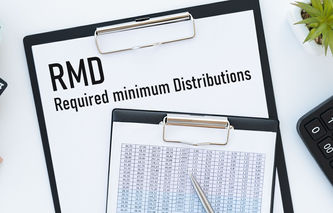Retirees that want to enjoy a richer lifestyle should give serious thought to tapping into their home's equity using a reverse mortgage. For many Americans, the single most valuable asset they own is their home, and reverse mortgages allow seniors to generate a steady stream of income. In this article, we're going to help answer the question: What is a reverse mortgage? We're also going to explain how these loans work, and discuss the different offerings on the market today. Finally, we're going to finish up with some information on how they're calculated, their income tax treatment, and the costs associated with this type of loan.
What is a Reverse Mortgage?
A reverse mortgage simply allows homeowners to release the equity they have in their homes, and turn that equity into a steady stream of monthly income. The nice thing about these loans is the process can be completed without selling the home. With a conventional mortgage, a borrower makes monthly payments to a lender to pay off the balance owed on a loan. With a reverse mortgage, the arrangement is just the opposite. The homeowner is receiving money from the lender, and the balance on the loan grows over time. That's where the term "reverse" comes from. Since the lender is sending money to the homeowner each month, a reverse mortgage is like slowly selling back a portion of the home to the lender. The process creates a loan that eventually needs to be paid back, which happens when the owner and spouse pass away, when the home is sold, or when that house is no longer the borrower's principal residence.
Qualification Rules
While each lender may have a slightly different set of rules, there are generally four requirements to qualify for a reverse mortgage:
The borrower must be a homeowner.
The borrower must be age 62 or older.
The home must be owned outright (no mortgage) or have a low outstanding balance.
The borrower must live in the home.
Once obtained, there are three additional requirements the borrower will need to agree to:
The home must be maintained in good condition.
Continued payment of property taxes and homeowners insurance.
Title and ownership of the home must remain in the borrower's name.
A reverse mortgage simply allows homeowners to release the equity they have in their homes, and turn that equity into a steady stream of monthly income.Moneyzine Editor
The structure itself generally must be a single family dwelling, or a two-to-four-unit property. Townhouses, detached homes, FHA approved condominiums, and some manufactured homes are eligible too. Information released by the U.S. Department of Housing and Urban Development indicates that over the past 15 years, more than 300,000 senior citizens have taken advantage of the benefits reverse mortgages have to offer.
Single Purpose, HCEM and Proprietary Loans
There are three basic types of reverse mortgages:
Single Purpose: offered by non-profit organizations, state, and local government agencies. They generally have very low costs, but availability is limited. There may also be income restrictions for these loans.
Federally Insured: backed by the U.S. Department of Housing and Urban Development (HUD) and are called HECMs (Home Equity Conversion Mortgages). The amount of money borrowed depends on age, type of mortgage selected, value of the home, interest rates, and where the home is located.
Proprietary: developed and backed by the private lenders. Like the HECM, these loans tend to have higher upfront costs and can be expensive in the short-term. One of the more popular proprietary loans is the Fannie Mae HomeKeeper Mortgage.
Statistically, HUD's program covers almost 90% of the reverse mortgage market. It's possible to find a list of HUD approved lenders, by state, here.
Payments
In general, there are five ways a homeowner can receive payment with a reverse home mortgage:
Term: equal monthly payments that continue for a fixed period of months.
Tenure: equal monthly payments that continue as long as at least one borrower is alive, and continues to occupy the home as a principal residence.
Line of Credit: unscheduled, or occur in installments, at times, and in amounts, that are chosen by the borrower until the line of credit is exhausted.
Modified Term: a combination of line of credit with monthly payments that last for a fixed period of months as chosen by the borrower.
Modified Tenure: a combination of line of credit with monthly payments that continue for as long as the borrower remains in the house.
Reverse Mortgage Calculations
The factors that go into calculating reverse mortgages are quite complex. In fact, there are very few calculators on the web. In the sections below is an example calculation, as well as the factors driving the payment received with this type of loan.
Calculation Variables
The factors used in a reverse mortgage calculation include:
Interest Rates: the overall rate of interest charged includes an index rate plus a lender's margin.
Interest Rate Cap: since these mortgages work off an index, there is a cap placed on the loan to limit the interest rate charged.
Creditline Growth: a factor that tells the borrower how fast their credit line will grow each year if they decide not to use the line of credit offered.
Value of Home: the current market value of the home. The net value of the home is used to calculate the reverse mortgage payment, and will take into consideration liens or other costs to repair the home.
Fees: includes appraisals ($300 to $500), mortgage insurance premiums ($4,000 to $7,000), loan origination fees ($4,000 to $7,000), closing costs ($500 to $1,000), and loan servicing ($30 to $50 per month).
The above numbers demonstrate how costly a reverse mortgage is to the borrower. The loan itself can easily cost $5,000 or more in fees. That being said, and as the example below demonstrates, even with its high fees this type of arrangement can supply a significant source of retirement income.
Reverse Mortgage Example
In this example we have a 70-year-old retiree living in Middle America with a home value of $300,000. The table below demonstrates three payment options: a lump sum, creditline, or monthly payments for the two most popular reverse mortgages on the market today.
Payment Method | HECM | HomeKeeper |
Single Lump Sum | $141,007 | $90,301 |
Lifetime Monthly Payment | $942 | $653 |
Creditline Account | $141,007 | $90,301 |
Creditline Growth / Year | 7.22% | 0% |
Creditline in 5 Years | $199,796 | $90,301 |
Creditline in 10 Years | $283,096 | $90,301 |
Please note that although they are not clearly seen in the example above, the fees mentioned in the prior section do apply to these loan amounts. In fact, for this example the fees were in the $15,000 range. But as the above numbers demonstrate, this borrower can enjoy nearly $1,000 in monthly retirement income, for life.
Income Taxes
The money received under a reverse mortgage agreement is considered a loan, not household income. As such, the funds received are not subject to federal or state income taxes, and will not have any affect on benefits received under the Social Security program. Borrowers that receive Medicaid benefits or Supplemental Security Income (SSI) are not affected if the money is spent in the same month received. That being said, when in doubt, it's best to consult with a tax advisor.


